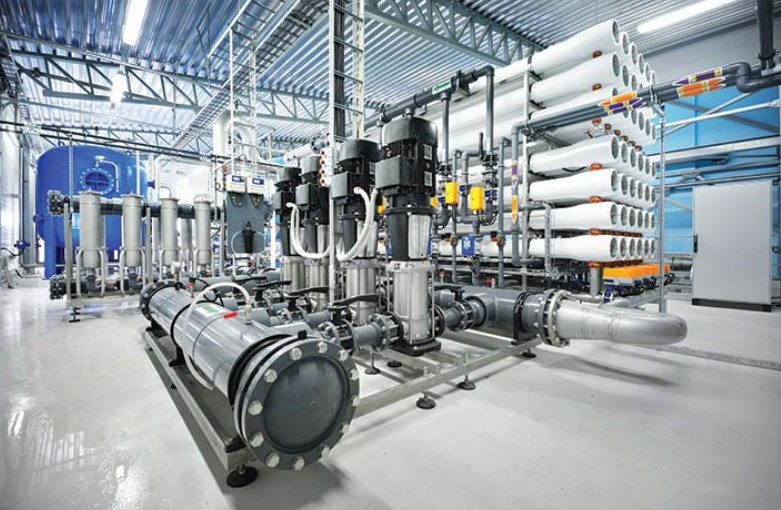
Enhancing Industrial Efficiency Through Advanced Filtration
Understanding the Role of Filtration in Industrial Operations
In modern industrial settings, maintaining the quality and efficiency of machinery is critical for productivity and cost management. One of the most common challenges industries face is the degradation of oils used in equipment. Oils, whether used for lubrication, hydraulics, or other operational purposes, accumulate contaminants over time, including dust, metal particles, and moisture.
Effective filtration systems are essential to remove these impurities and ensure that machinery operates smoothly. By preventing equipment wear and reducing the risk of unexpected breakdowns, industries can save significant costs while improving overall efficiency.
How Oil Purifiers Improve Equipment Performance
oil purifiers play a central role in maintaining industrial oil quality. These systems are designed to remove suspended particles, water, and dissolved gases, which can negatively affect the performance and lifespan of machinery. The benefits of using oil purifiers include:
- Enhanced machine longevity: Clean oil reduces friction and wear on moving parts, extending the operational life of critical components.
- Operational reliability: Purified oil ensures consistent performance, minimizing the likelihood of sudden equipment failures.
- Reduced maintenance costs: Less frequent replacement of oil and parts translates into significant cost savings over time.
The adoption of oil purifiers is becoming a standard practice in industries such as manufacturing, energy, automotive, and heavy machinery, where equipment uptime is directly tied to productivity and revenue.
Key Features of Modern Oil Purification Systems
Technological advancements have made modern oil purifiers highly efficient and versatile. Some of the key features include:
- Multi-stage filtration: Many systems combine mechanical, chemical, and physical processes to remove a wide range of contaminants.
- Automatic monitoring: Integrated sensors provide real-time feedback on oil quality, enabling timely interventions before issues arise.
- Energy efficiency: Advanced designs minimize power consumption while maintaining high purification performance.
- Scalability: Systems can be tailored for small workshops or large industrial plants, ensuring flexibility for different operational needs.
These features ensure that oil purifiers not only extend the life of the oil but also contribute to smoother and more efficient industrial operations.
Types of Oil Purifiers and Their Applications
Oil purifiers come in various types, each designed for specific industrial needs:
- Centrifugal purifiers: These systems use centrifugal force to separate solid particles and water from oil, commonly used in large-scale operations.
- Vacuum dehydration units: Effective for removing moisture and dissolved gases, these purifiers are ideal for hydraulic and turbine oils.
- Filter-based purifiers: Utilize mechanical filters to trap particles and impurities, suitable for a wide range of lubrication and hydraulic systems.
Choosing the right type of oil purifier depends on factors such as the volume of oil, type of contaminants, and operational requirements.
See also: Optimizing Corporate Travel Efficiency for Tech Companies
Benefits Beyond Equipment Protection
Investing in high-quality oil purifiers offers advantages beyond extending machinery life. These include:
- Environmental impact: Reducing the need to frequently dispose of used oil helps lower industrial waste and environmental pollution.
- Cost efficiency: Reusable and well-maintained oil reduces procurement costs and improves overall operational budget management.
- Enhanced safety: Cleaner oil reduces the risk of overheating, corrosion, or mechanical failures, creating a safer work environment.
These benefits make oil purifiers a strategic investment for industries aiming to improve both productivity and sustainability.
Maintenance and Operational Considerations
For optimal performance, oil purifiers require regular maintenance and careful operation. Best practices include:
- Routine system inspections: Checking filters, monitoring sensors, and observing oil quality ensures consistent purification.
- Timely replacement of consumables: Ensures that filtration elements are functioning effectively and prevents contamination.
- Operator training: Educating staff on system operation and early warning signs of contamination improves efficiency.
- Proper installation: Correct integration with existing machinery minimizes downtime and ensures smooth operation.
Regular maintenance not only prolongs the life of the oil purifiers but also ensures that industrial operations continue without interruptions.
Economic and Industrial Implications
The economic impact of adopting oil purifiers can be substantial. By extending the life of oil and reducing machinery repairs, companies can significantly cut operational expenses. Additionally, improved equipment performance translates into higher production rates and fewer delays.
Industrially, the adoption of oil purifiers is associated with improved sustainability. By reducing waste oil and supporting environmentally responsible practices, companies can meet regulatory standards and improve their corporate social responsibility profile.
Future Trends in Oil Purification Technology
The oil purification industry continues to evolve with innovations aimed at increasing efficiency, sustainability, and smart operation. Emerging trends include:
- IoT-enabled purifiers: Allowing remote monitoring, predictive maintenance, and real-time analytics.
- Eco-friendly filtration materials: Minimizing environmental impact while maintaining high purification standards.
- Compact and modular systems: Designed for flexibility, easy installation, and adaptability to varying industrial scales.
- Advanced purification methods: Multi-stage filtration and dehydration processes achieve near-zero contamination levels.
As these trends continue to develop, industries can expect more reliable, cost-effective, and environmentally conscious purification solutions.
Choosing the Right Oil Purifier
Selecting the appropriate oil purifier is critical for achieving the best results. Key considerations include:
- Industrial requirements: The type and volume of oil, machinery specifications, and contaminant levels dictate the system type.
- Reliability and support: Choosing a supplier with a proven track record and strong after-sales support ensures long-term benefits.
- Efficiency and cost-effectiveness: Systems should balance operational efficiency with energy consumption and maintenance costs.
- Compliance with standards: High-quality oil purifiers meet international safety and quality standards, providing peace of mind.
By carefully evaluating these factors, industries can maximize the benefits of their investment in oil purification.
Conclusion
Oil purifiers are essential tools in modern industrial operations, offering numerous benefits ranging from extended machinery life to cost savings and environmental protection. With technological advancements, these systems are becoming more efficient, adaptable, and sustainable.
Industries that invest in reliable oil purifiers not only enhance operational performance but also demonstrate a commitment to sustainable and responsible practices. As the demand for cleaner, more efficient industrial processes continues to grow, the adoption of advanced oil purification systems is likely to become a standard for forward-thinking organizations.




